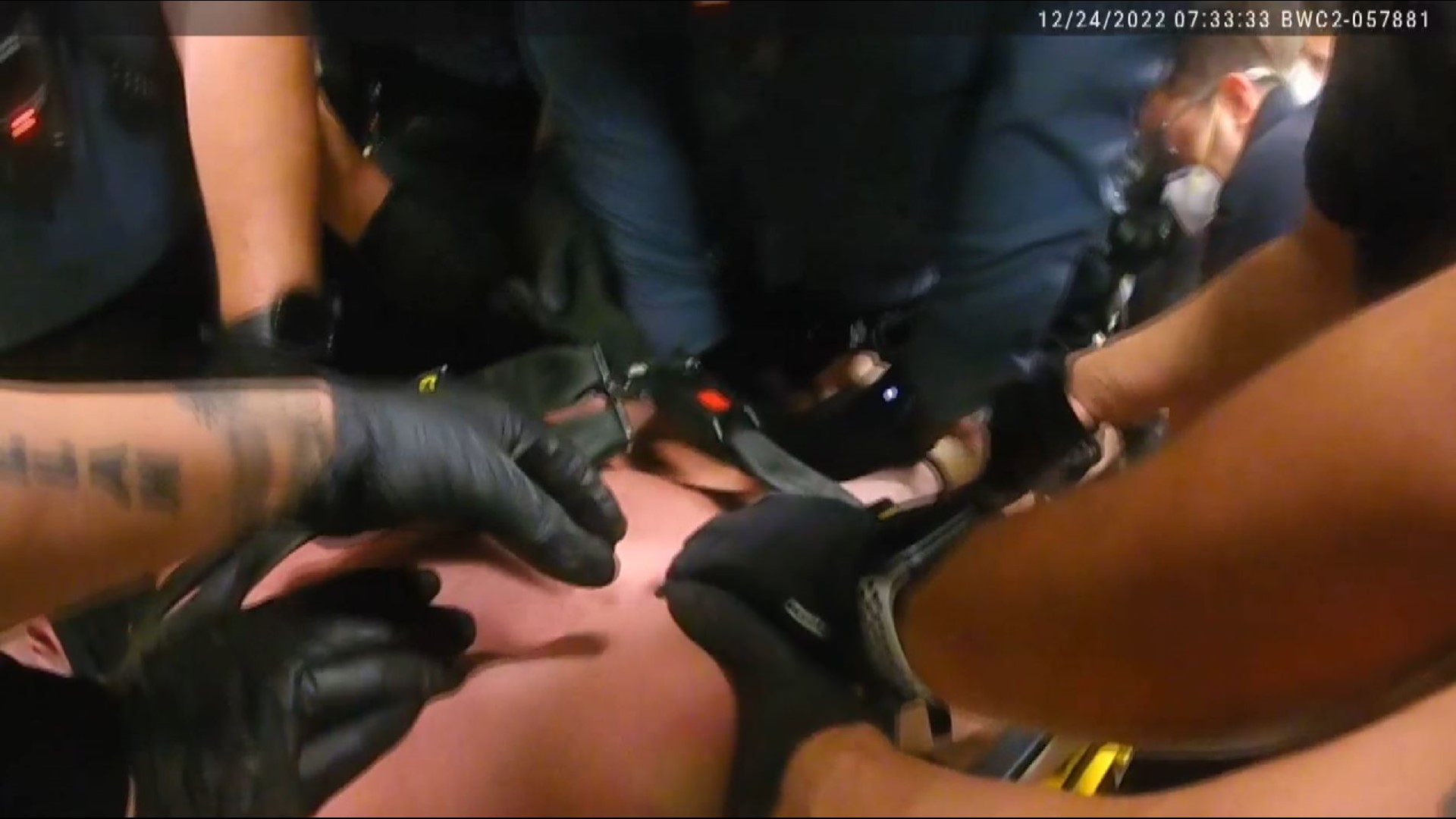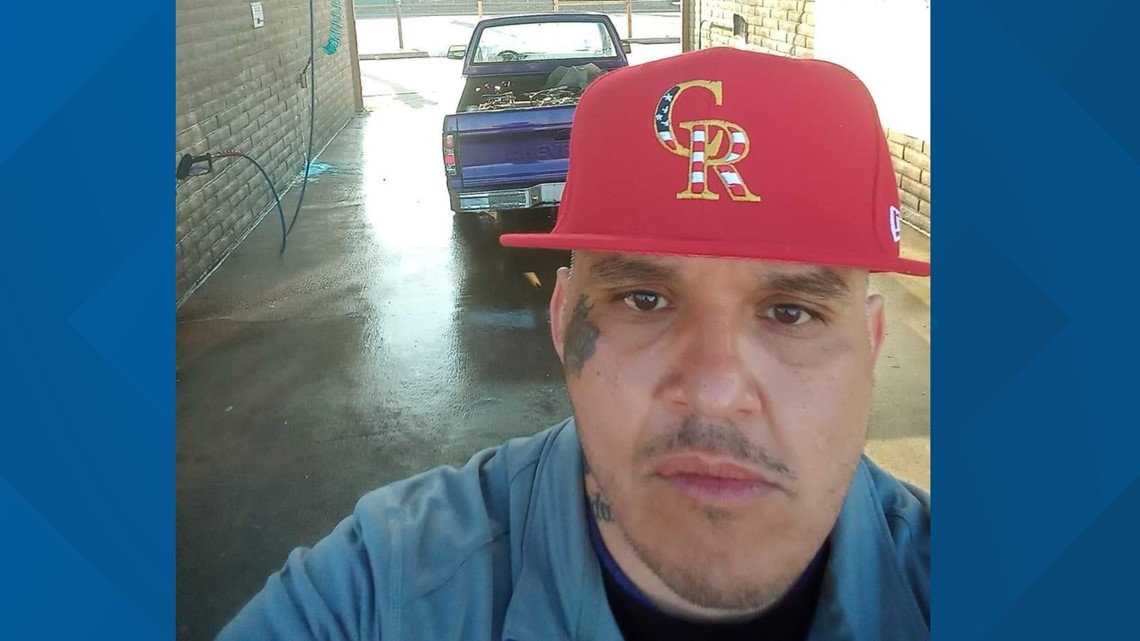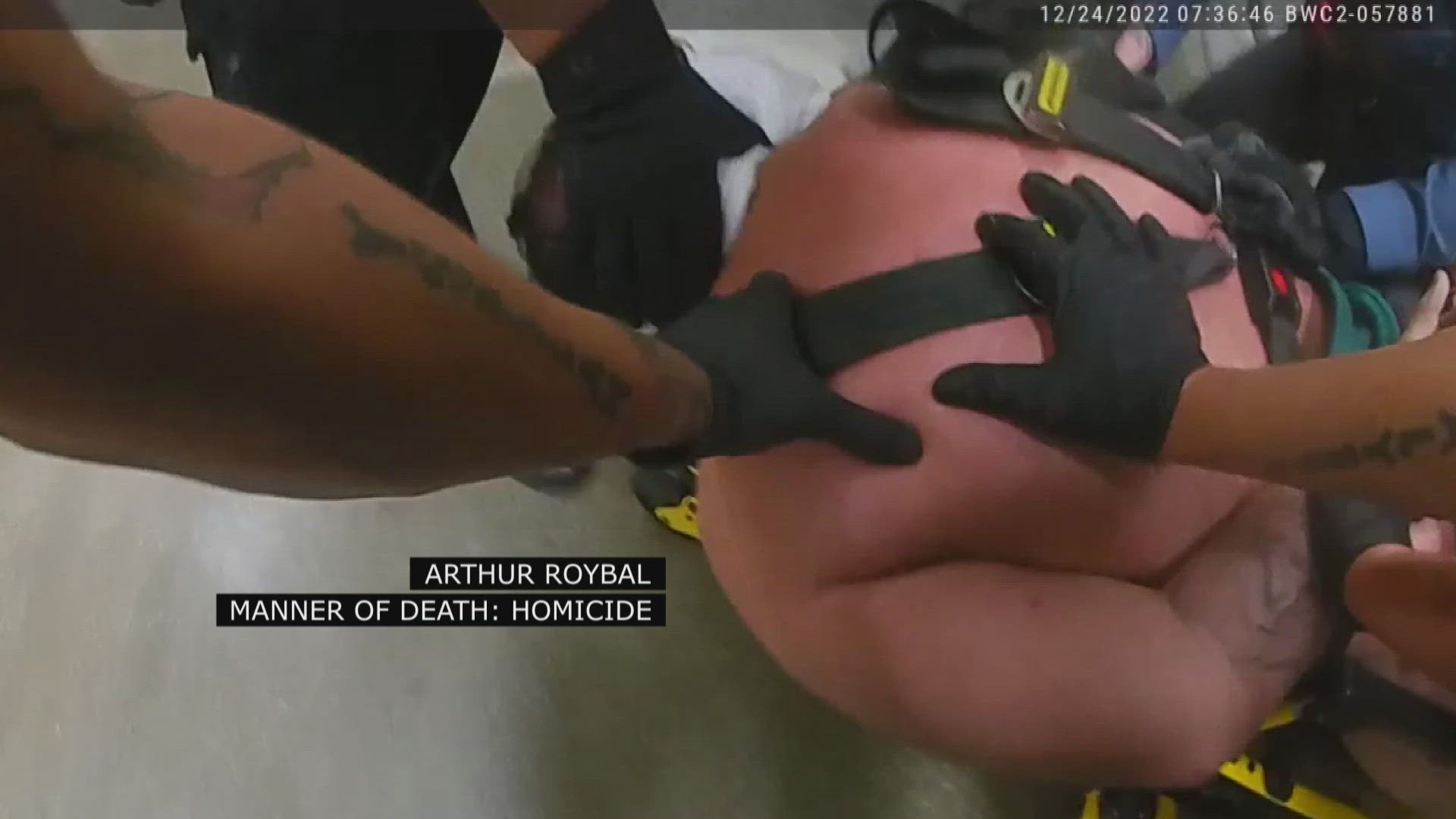More than a year after inmate death, deputies involved remain uninvestigated and on the job
Arthur Roybal died after a 16-minute facedown, strapped-down restraint on a gurney in 2022. His death appears to be a clear violation of Adams County policy.

Nearly a year and a half after a botched transport of a mentally ill inmate inside the Adams County Detention Center led to the inmate’s death, not one of the deputies involved in the transport has faced an internal review or official punishment, 9NEWS Investigates has found.
In fact, a spokesperson said, the deputies “are still working their normal assignments.”
The transport of Arthur Roybal on Christmas Eve 2022 appears to be a clear violation of Adams County's own policy that prohibits deputies from placing inmates “facedown or in a position that inhibits breathing.” Numerous deputies placed Roybal facedown onto a gurney before strapping down his body with a series of belts.
The local coroner called the death a homicide due to, in part, “prolonged restraint in a prone (facedown) position.”
To date, not a single deputy involved in the transport has faced even a hint of consequence. 9NEWS Investigates spent months trying to better understand why.
What we found represents as much of a story about Adams County policy as it says about statewide standards when it comes to law enforcement investigating law enforcement.
Christmas Eve 2022


Inside cell 34, Roybal was naked and screaming nonsensically on the morning of Dec. 24, 2022. Deputies arrived with a game plan. He needed medical attention, but first they had to transport him to the jail’s medical bay.
The cell extraction, by all accounts, was by the book. They entered the cell, handcuffed him without too much resistance, and carried him down a flight of stairs to a gurney.
That was when the problem started.
Instead of placing him onto the gurney on his back – or faceup – a decision was made to keep him facedown.
It was a terrible mistake, Seth Stoughton told us last year. Stoughton, a law professor at the University of South Carolina and a former police officer, said, “I cannot for the life of me understand why officers put Mr. Roybal in the gurney facedown and then strapped him in.”
“[Facedown restraint] puts pressure on the diaphragm that we know can negatively impact breathing,” he said.
The risks of facedown – or prone – restraint are so well-known that even in Adams County, the sheriff’s office expressly forbid it inside the jail. “Restrained inmates shall not be placed facedown or in a position that inhibits breathing,” reads the office’s own policy.
Sixteen minutes after deputies placed Roybal onto the gurney, he stopped breathing.
“I miss my brother. I think about him every day,” Adam Hernandez said last month.
Roybal had a history of mental illness that often caused him to act in ways that made him a target of law enforcement action. In addition, he had a large amount of methamphetamine in his system when he died. The Adams County coroner considered that when it put together the autopsy report but in the end concluded that the restraint contributed to Roybal's death and thus called the manner of death a homicide.
Shortly after Roybal’s death, 9NEWS Investigates asked a spokesperson for the county sheriff if it would place any of the deputies involved on leave. At that point, the spokesperson said no, adding the office would wait for the criminal review to conclude before starting an internal review of the deputies’ actions.
That was 17 months ago.
A spokesperson for the local district attorney said last week, “I do not have any further information to provide you about the completion of a review of this incident.”
It’s not clear what is taking the 17th Judicial district attorney so long to make public the results of its investigation. The incident was captured on body cameras. The autopsy was completed precisely one year ago.
In the meantime, without the results of the criminal investigation complete, the Adams County Sheriff’s Office has moved forward with a business-as-usual approach.
“[The deputies involved] are still working their normal assignments,” spokesperson Sgt. Adam Sherman said in an email.
> Editor's Note: This raw video contains death, brutality and offensive language, and may be difficult to watch. 9NEWS has chosen to redact racially offensive language.
"It's not good practice"
Think of the investigations that typically follow in-custody deaths as two separate and distinct roads.
There’s a criminal investigation that decides whether the actions of the law enforcement officers were a possible violation of criminal law. In Adams County, that is the role of what’s known as a CIRT – or Critical Incident Response Team – which is largely made up of criminal investigators assigned to neighboring departments. The CIRT team delivers its report to the local district attorney, who must decide whether criminal charges are warranted.
The other road consists of a largely administrative review. The job of that review is to determine whether any policy violations occurred during the death. If so, the officers involved could face consequences right up to dismissal.
In Colorado, the decision on when to begin the administrative review after an in-custody death is largely left up to the agency involved in the death.
9NEWS Investigates found most agencies we queried along the Front Range run their internal affairs (IA) reviews simultaneously with the criminal review. Of the 36 agencies we contacted, two-thirds handle it this way.
The so-called “concurrent” investigations allow for a quicker resolution to the administrative review.
Former Douglas County Sheriff Tony Spurlock told us that’s the way to go.
“It’s common practice across the country,” he said.
Waiting for the criminal review to conclude before starting an internal review, he said, “is not good service to your community, it’s not good service to your agency, and it’s not good practice.”
He said it’s common for reviews to wait out of fear they might interfere with the criminal case, but he called those fears unfounded. “IA’s cannot cross over the wall and share information with the criminal side,” he said, due to constitutional protections.
Even most local district attorneys appear to be unconcerned about the issue. Six of the eight offices we contacted in Colorado told us they either take no position on the matter or believe internal reviews can begin at any time.
That includes the very office that the Adams County Sheriff’s Office appears to be deferring to in the case of the death of Roybal.
And, so, Roybal’s brother waits.
“I feel like they’re hiding, hiding why my brother is dead,” Hernandez said.
Adams County wouldn’t comment for this story beyond its short statement.
If you have any information on this story or on another investigation you think we should consider, please email the author at chris.vanderveen@9news.com
SUGGESTED VIDEOS: Investigations & Crime


